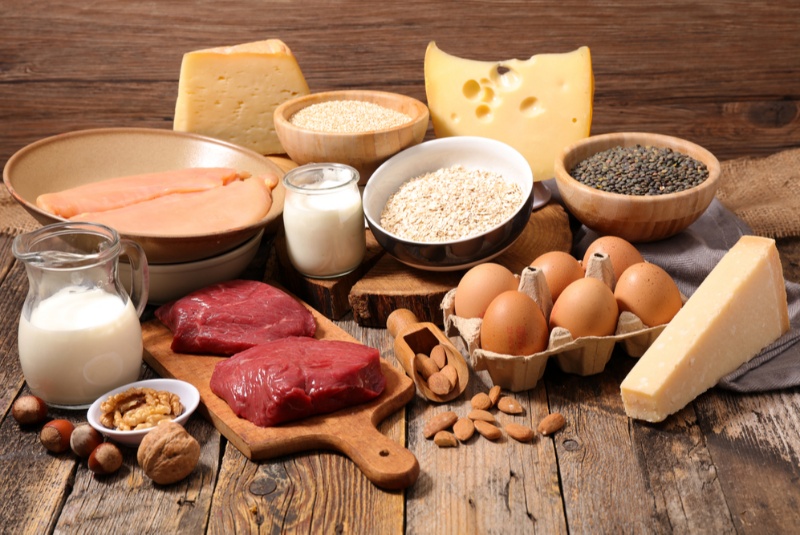Weight loss can be a challenging and complex process, with countless diets and strategies all claiming to be the secret to success. Among the plethora of options, one approach stands out: a high-protein diet. Not only can consuming more protein help you shed unwanted pounds, but it also provides a wide range of health benefits.
The Science Behind High-Protein Diets
- Appetite Regulation
One of the primary reasons why high-protein diets are effective for weight loss is their ability to regulate appetite. Protein has been shown to increase satiety, or the feeling of fullness, more than carbohydrates or fats. This increased satisfaction can help reduce overall calorie intake, which is crucial for weight loss.
- Metabolic Boost
A high-protein diet can also help increase your metabolism. When you consume protein, your body has to expend more energy to break it down compared to carbohydrates or fats. This process, known as the thermic effect of food (TEF), can lead to a higher metabolic rate, which in turn aids in burning more calories throughout the day.
- Muscle Preservation
As you lose weight, it’s essential to maintain muscle mass to prevent a decline in metabolic rate. Protein is a vital component for muscle growth and repair, and by consuming enough of it, you can minimize muscle loss during weight loss. This is particularly important for individuals who engage in strength training or other forms of exercise.
- Improved Body Composition
A high-protein diet can help you achieve a more desirable body composition by promoting fat loss while preserving lean body mass. This is due to the combined effects of appetite regulation, increased metabolism, and muscle preservation. The result is a leaner, more toned physique.

How to Incorporate More Protein into Your Diet
- Choose Quality Protein Sources
To maximize the benefits of a high-protein diet, focus on consuming high-quality protein sources. These include lean meats, poultry, fish, eggs, dairy products, legumes, nuts, and seeds. Aim to incorporate a variety of these sources to ensure a balanced intake of essential amino acids.
- Spread Protein Intake Throughout the Day
To optimize protein synthesis and maintain satiety, it’s a good idea to spread your protein intake evenly throughout the day. Try to include a protein-rich food in every meal and snack, and aim for at least 20-30 grams of protein per meal.
- Combine Protein with Fiber-Rich Foods
Pairing protein with fiber-rich foods, such as fruits, vegetables, and whole grains, can further enhance satiety and promote better digestion. This combination can help you feel full for longer periods, reducing the likelihood of overeating.
- Adjust Your Protein Intake Based on Your Needs
The ideal amount of protein for weight loss may vary depending on factors such as age, sex, activity level, and individual goals. A general guideline is to consume between 1.2 to 1.6 grams of protein per kilogram of body weight daily. However, it’s essential to consult with a registered dietitian or healthcare professional to determine the optimal protein intake for your specific needs.
A high-protein diet can be an effective tool for weight loss, offering numerous benefits such as improved appetite regulation, increased metabolism, muscle preservation, and enhanced body composition. By choosing high-quality protein sources and incorporating them into your daily meals, you can reap the rewards of a protein-rich diet and achieve your weight loss goals. Remember to consult with a healthcare professional to tailor your protein intake to your unique needs and ensure a safe and effective weight loss journey.


